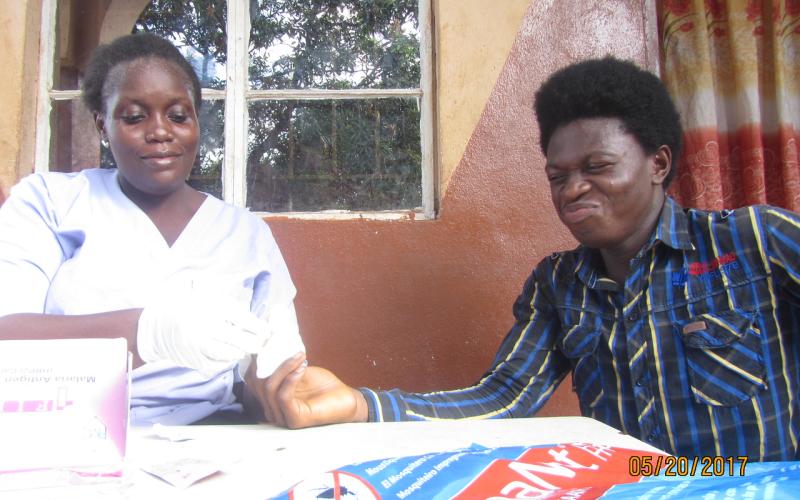
Although completely preventable, malaria is endemic in Sub-Saharan Africa, and the consequences of its persistence are staggering. World Health Organization (WHO) reported 429,000 malaria deaths in 2015, 90% of which occurred in Sub-Saharan Africa. These statistics may be discouraging, but at risk populations saw a 29% reduction in malaria frequency between 2010 and 2015. Since 2000, Africa has experienced a 66% reduction in malaria-related deaths and a 42% reduction of malaria cases.
Primarily caused by mosquito bites, malaria is spread when an infected mosquito transmits Plasmodium parasites to its unsuspecting victims. The intensity of malaria transmission depends on many factors, one of the most significant factors being the lifespan of the mosquito. Longer mosquito life spans allow the parasites living within the mosquito to become fully developed, thus intensifying transmission to the human victims. According to WHO, “the long lifespan and strong human-biting habit of the African vector species is the main reason why nearly 90% of the world's malaria cases are in Africa” [1].
Immunity developed after years of exposure provides some protection against malaria for adults, but young children and persons with compromised immune systems remain at very high risk. Undeveloped human immunity explains why 70% of all malaria deaths occur in children under the age of five, and why all age groups are at risk in areas where exposure to malaria is less prevalent.
Despite the devastating statistics of malaria related deaths that are cited in so many reports and articles, we believe there is hope for a malaria-free Africa; other countries have beaten malaria and Africa will too. Between 1947 and 1952, the United States eradicated the disease within its borders in just four years, proving that malaria can be stopped [4]. Between 2010 and 2015, global malaria cases fell by 21%, and mortality rates for children under age five fell by 35% [1]. Mosquito nets have been a major factor in these dramatic reductions. In fact, according to UNICEF, “The insecticide-treated mosquito net, or ITN, is one of the most effective weapons against malaria” [5].
Several factors can be attributed to the reduction of malaria in recent years, including the “improved availability and use of insecticide-treated nets, diagnosis-based treatment with artemisinin-based combination therapy, engagement of communities in malaria control, and strengthening capacity in vector control for malaria” [2]. WHO insecticide-treated mosquito nets to be one of two types of vector control that are “effective in a wide range of circumstances" and they recommend insecticide-treated mosquito nets for at-risk individuals along with counseling on how to properly use and maintain the nets [1].
Despite a massive increase in the number of mosquito nets distributed throughout Africa since 2000, UNICEF reports that many countries like Sierra Leone and The Gambia still have more than half of all children under age five sleeping without the protection of a net [3]. Develop Africa is actively working to raise the necessary funds to purchase mosquito nets for people in Sub-Saharan Africa. If you are able to help then we can potentially save even more lives.
[1] World Health Organization. (2016). Malaria: Fact sheet. Retrieved from http://www.who.int/mediacentre/factsheets/fs094/en/
[2] World Health Organization. (n.d.). Malaria. Retrieved from http://www.afro.who.int/en/malaria
[3] UNICEF. (2016). Children sleeping under an ITN [Data file]. Available from https://data.unicef.org/topic/child-health/malaria/
[4] Centers for Disease Control and Prevention. (2012). Elimination of Malaria in the United States (1947 — 1951). Retrieved from
https://www.cdc.gov/malaria/about/history/elimination_us.html
[5] UNICEF. (n.d.). Preventing malaria. Retrieved April 3, 2017 from https://www.unicefusa.org/mission/survival/malaria

